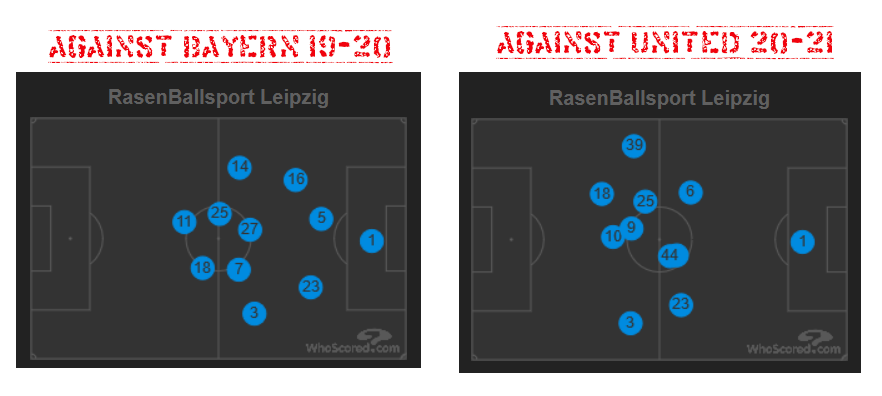There are so many variables here that it's impossible to sum them all up and make an entirely coherent argument for either case. Clearly, the Bundesliga is not as strong as the Premier League, that is without question. But that doesn't make it a shit league. There have been some very interesting tactical innovations coming out of Germany, and in Bayern, they have produced the best side on the continent.
The reason it is spurious to use European competition performance as a reliable barometer of the relative strength of the league is that statistics can be easily swayed by the over performance of one or two sides. Look at Spain with Barca and Real Madrid, France with PSG, and Germany with Bayern. Leagues in which one or two clubs are supremely dominant, hoovering up all the domestic talent, and enjoying a free run at the top tier of foreign talent likely to come to their respective leagues. You also have to look at the undeniably more rigorous demands of the Premier League, week in and week out. It is so much harder for PL sides to rest key players consistently in the league without dropping points, because games are so much more competitive throughout the top tier, and that has a knock on effect for European performance. Fatigue is a vital factor, especially as seasons wear on. In top line sport the extra 1-2% makes all the difference in the world. We haven't even discussed the impact of a lack of a proper winter break on English teams, a factor which has undoubtedly hampered the national team for decades.
The difference between the top leagues is greatly exaggerated by all concerned, but of course there IS a difference. The landscape would look very different if Bayern, or Barca, or Real, had to grind their way through a full PL campaign, FA Cup, League Cup, and Europe, at a faster pace and with more physicality. But we'll never know how they would cope, and because of the myriad variables involved, these "relative strength" threads are - whilst fun - lacking in any meaningful quantitative data. Even the qualitative arguments can only ever be hypothetical as there is no real world mechanism for testing the hypothesis.
As a United fan I obviously miss the days of domestic domination, and European competitiveness. But as a football and premier league fan I think a more competitive league is better for everyone. Collective bargaining has proven the strength of the Premier League's appeal. Where I have an issue is in the sugar daddy/oil state funded clubs reshaping the financial landscape. It's resulted in a clumsy efforts to regulate and a distortion of the heritage and pedigree of our top tier. My hope would be the Premier League can further regulate it's competition to put in place spending or salary caps to further even the playing field and place more emphasis on sporting ingenuity rather than financial strength. This is a transition that United have struggled to make. Once the predominant financial powerhouse in domestic football, the influx of almost unlimited wealth to City and Chelsea (at various times), has placed a higher value on the importance of making strategically successful sporting decisions. To exacerbate this. the boom of TV rights to clubs across the entire top tier ( a success of collective bargaining) has meant top talents cannot be cherry picked from mid-table or relegation candidates. Liverpool have adapted to the new landscape incredibly well, and embraced a data driven response to the market (not surprising given their links to the Boston Red Sox), but I feel we have found it hard to move on from the "we can just buy better players than you" mentality, most infamously manifested by Eddie's "watch this space" speech.
United still wield considerable financial clout no doubt, but it is only with a coupling of a robust and data driven strategic sporting plan that we can recreate the glories of yesteryear. I know that Solksjaer has taken his flack from fans, and he seems to alternate between being the bees knees and public enemy number one, depending on the latest result; but what struck me most about his appointment was that early on I read several pieces talking about him presenting his ideas not just of what the team would look like in the current season, but what the shape of the team would look like in the next 3-5 seasons. And that's the sort of desperately important thinking that has been lacking ta this club. Success is rarely instanteous, and when it is, it is rarely sustainable. The most reliable pathway to success is building a coherent long term plan aimed at having a constantly evolving competitive advantage. That competitive advantage used to be as simple as having more financial clout than anyone else, and the greatest manager in the history of British Football. Our approach now, by necessity, has to be much more nuanced, much more intelligent, and have continuity regardless of changes in managerial personnel. I don't think many of us have a great deal of hope that this strategic vision is seen or embrace by current executive leadership, yet perhaps the financial implications of the pandemic - coupled with the painful lessons of the last seven years - will finally drive a change of strategic thinking.
I may have gone a little off topic.



